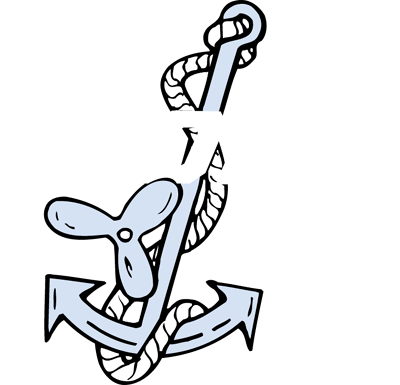Coast Guard Watch
The most recent United States Coast Guard Authorization Bill cleared the House of Representatives in late November 2009 without any Administrative Law Judge reform language. Chairman Elijah Cummings of the House Subcommittee on Coast Guard and Maritime Affairs now wants to refrain from taking any action on the ALJ matter until he can hold follow up hearings in 2010.
And, under the "You'd think they would have something better to do with their time" department, there's this: The Coast Guard announced on December 23 that it is adjusting its civil penalty schedule upward by 19.12 % to account for inflation since the last upward adjustment in the year 2003. 74 Fed. Reg. 68150 (Dec. 23, 2009).
Many readers will recall the June 12, 2009 GAO report on the Coast Guard's administrative law program (Currents & Eddies, June 25, 2009). Reference was made in that article to an internal review by the Department of Homeland Security Office of the Inspector General. Whereas the GAO report merely looked at the administrative law program's legal and regulatory structure, (and concluded that the governing statutes and regulations, at least, did provide sufficient guarantees of fairness to the mariner), the Inspector General Review is expected to examine the specific allegations of wrongdoing raised by retired Coast Guard Administrative Law Judge Jeffie J. Massey. At the time of the June 25 article, it was reported that the DHS I. G. would have its report out by the end of the summer (meaning August or September 2009). That report is not yet out. Interviews and investigations by I.G. attorneys and staff continued throughout the fall of 2009, and the report is now expected to be released sometime this spring.
USCG v. George L. Law. Jr. Comm.
(App. Dec. 2663) (August 6, 2007)
In this case, the Coast Guard charged the respondent with misconduct for failing to disclose a criminal conviction in his license renewal application. The ALJ found misconduct, but imposed a six month suspension rather than a penalty of revocation, which the Coast Guard insisted was mandatory. The Coast Guard appealed, but the Commandant sustained the ALJ's suspension.
The particular facts in the case were central to the ALJ's - and eventually the Commandant's - reasoning. In 1999, the respondent had pleaded nolo contendere to a domestic violence battery charge and was ordered to pay court costs and to attend anger management classes. The court later modified its order by waiving the anger management class requirement. At his license hearing, the respondent testified that he thought the trial court's waiver of the anger management requirement resulted in dropping the battery charge and that because of that, he was therefore not required to report the incident on his license renewal application form. In its appeal to the Commandant, the Coast Guard argued that there was no specific intent element in their misconduct charge, and that prior Commandant Appeal Decisions mandated a revocation.
In sustaining the ALJ's lesser sanction of suspension, the Commandant noted that prior Appeal Decisions had recognized a difference between a fraudulent statement and a false statement. A false statement is one where there is no actual or constructive knowledge that the statement is false; a fraudulent statement requires knowledge of falsity and intent to mislead. The Commandant also noted that the Administrative Procedures Act ("APA") requires that any imposition of a sanction must be supportable by probative, substantial and reliable evidence. (5 USC sec. 551). He also noted that the Supreme Court has equated "probative, substantial and reliable" evidence with the "preponderance of evidence" standard, and went on to note that under the application of either standard, the Coast Guard had failed to meet its burden of proving fraud. Because of this, and because of the fact that Commandant Appeal Decisions had specifically found "false application" to be a lesser included offense within the charge of "fraudulent application", the absence of a specific intent specification in the charge sheet was not dispositive. The ALJ's order of a suspension rather than a revocation was accordingly sustained.
EVALUATION
This case provides useful citations and useful analytical tools for the defense of any claim of fraud and, in a more limited sense, for any claim for which specific intent may become an issue. It should be noted however that the decision in this case specifically rests on the distinction between a false statement and a fraudulent one.
